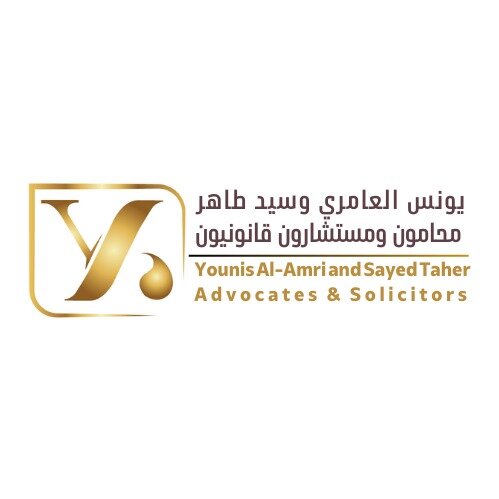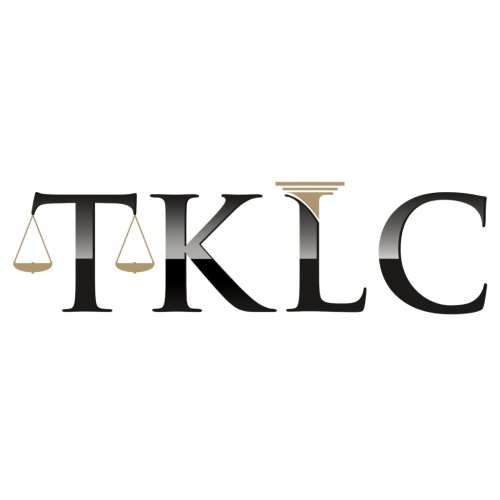Best International Trade Law Lawyers in Oman
Share your needs with us, get contacted by law firms.
Free. Takes 2 min.
Or refine your search by selecting a city:
List of the best lawyers in Oman
About International Trade Law in Oman
International Trade Law in Oman encompasses a wide array of legal regulations governing trade between Oman and other nations. This legal framework includes treaties, regulations, and customary international trade laws aimed at facilitating cross-border commerce, protecting domestic and international interests, and ensuring compliance with international standards. Oman's strategic location and its membership in various international organizations such as the World Trade Organization (WTO) contribute to a robust framework for trade regulation. The legal landscape is shaped by both international conventions and local statutes, promoting efficient trade practices, investment promotion, and economic growth.
Why You May Need a Lawyer
Seeking legal assistance in the field of International Trade Law can be essential for various reasons, including:
- Contract Negotiation: Ensuring that international trade contracts are clear and enforceable.
- Compliance Issues: Navigating complex regulatory environments and staying compliant with local and international laws.
- Dispute Resolution: Handling disputes arising from trade agreements through arbitration, mediation, or court proceedings.
- Intellectual Property Rights: Protecting and managing intellectual property involved in international trade.
- Customs and Tariffs: Understanding import/export duties, tariffs, and other customs-related issues.
Local Laws Overview
Oman's approach to International Trade Law is grounded in a combination of international agreements and local regulations:
- Trade Treaties: Oman is a member of the WTO and a signatory to multiple bilateral and multilateral trade agreements that dictate trade terms.
- Commercial Laws: Domestic commercial laws regulate business operations, covering areas like company formation, trade licenses, and commercial transactions.
- Customs Law: Oman has established specific customs regulations to control the import and export of goods, including customs duties and inspection procedures.
- Investment Laws: Legal provisions to encourage foreign investments while safeguarding national interests.
- Intellectual Property Rights: Oman adheres to international standards governing intellectual property, providing protection for trademarks, patents, and copyrights.
Frequently Asked Questions
1. What is International Trade Law?
International Trade Law refers to a set of legal rules and agreements that govern trade between countries, focusing on issues such as trade restrictions, tariffs, and trade agreements.
2. How does Oman regulate international trade?
Oman regulates international trade through local commercial laws, international treaties, trade agreements, and membership in the WTO.
3. What are common issues in international trade transactions?
Common issues include contract disputes, intellectual property concerns, regulatory compliance, and customs declarations.
4. How can a lawyer help with international trade disputes?
A lawyer can assist in resolving disputes through negotiation, mediation, arbitration, or litigation, ensuring that your interests are effectively represented.
5. What is the role of the WTO for Oman?
As a WTO member, Oman adheres to agreed global trade principles, benefiting from structured trade relationships and dispute resolution mechanisms.
6. How can I ensure compliance with Omani trade laws?
Consult a legal expert to navigate complex regulations, including customs laws, investment requirements, and commercial regulations.
7. What are usual tariffs and duties in Oman?
Oman applies specific customs duties on imports/exports, subject to change based on trade agreements and the nature of goods.
8. Are there export restrictions in Oman?
Some goods may face export restrictions due to national security, public safety, and international treaty obligations.
9. How are trade contracts enforced in Oman?
Trade contracts are enforced through domestic legal channels, including legal actions in commercial courts and arbitration.
10. What should I consider when entering the Omani market?
Consider factors such as market entry strategies, regulatory compliance, investment laws, and cultural nuances.
Additional Resources
Some useful resources and organizations related to International Trade Law in Oman include:
- Oman's Ministry of Commerce, Industry, & Investment Promotion
- Oman Chamber of Commerce and Industry
- World Trade Organization (WTO)
- Local legal firms specializing in International Trade Law
- Publications by the Centre for International Legal Studies
Next Steps
If you need legal assistance in International Trade Law, consider the following steps:
- Identify the specific legal issue or area where assistance is needed.
- Research and seek referrals for experienced international trade lawyers in Oman.
- Schedule consultations to discuss your case and understand potential legal strategies.
- Review and select a lawyer or legal firm that best fits your requirements.
- Stay informed about updates in trade regulations and maintain ongoing communication with your legal advisor.
Lawzana helps you find the best lawyers and law firms in Oman through a curated and pre-screened list of qualified legal professionals. Our platform offers rankings and detailed profiles of attorneys and law firms, allowing you to compare based on practice areas, including International Trade Law, experience, and client feedback.
Each profile includes a description of the firm's areas of practice, client reviews, team members and partners, year of establishment, spoken languages, office locations, contact information, social media presence, and any published articles or resources. Most firms on our platform speak English and are experienced in both local and international legal matters.
Get a quote from top-rated law firms in Oman — quickly, securely, and without unnecessary hassle.
Disclaimer:
The information provided on this page is for general informational purposes only and does not constitute legal advice. While we strive to ensure the accuracy and relevance of the content, legal information may change over time, and interpretations of the law can vary. You should always consult with a qualified legal professional for advice specific to your situation.
We disclaim all liability for actions taken or not taken based on the content of this page. If you believe any information is incorrect or outdated, please contact us, and we will review and update it where appropriate.
Browse international trade law law firms by city in Oman
Refine your search by selecting a city.

















